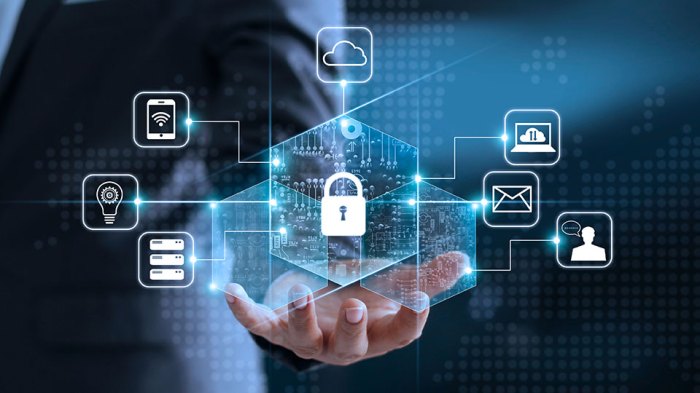CRM Security: Protecting Customer Data and Building Trust—it’s not just a buzzphrase; it’s the bedrock of any successful business. In today’s hyper-connected world, customer data is more valuable (and vulnerable) than ever. A single breach can shatter reputations, cripple finances, and send your loyal customers running for the hills. This isn’t about ticking regulatory boxes; it’s about safeguarding your customers’ trust, a precious commodity that fuels growth and longevity. We’ll dive into the crucial aspects of securing your CRM, from identifying threats to implementing robust security measures and fostering a culture of data protection.
We’ll explore practical strategies to fortify your CRM against common threats like phishing, malware, and insider attacks. We’ll cover essential security features, compliance regulations (GDPR, CCPA, and more), and the importance of transparent communication with your customers. Think of this as your ultimate guide to building a bulletproof CRM security system that not only protects your data but also strengthens your brand’s integrity and fosters lasting customer relationships.
Defining CRM Security Risks
Your CRM is the beating heart of your customer interactions, holding a treasure trove of sensitive data. But this valuable information makes your CRM a prime target for cyberattacks. Understanding the risks is the first step towards building robust security. Let’s dive into the potential vulnerabilities and threats.
Common CRM Vulnerabilities
CRM systems, while powerful, are not immune to vulnerabilities. Weak passwords, outdated software, and insufficient access controls are common entry points for attackers. Poorly configured integrations with other systems can also create security gaps, allowing malicious actors to infiltrate your network. Furthermore, a lack of regular security audits and employee training leaves your CRM susceptible to exploitation. These vulnerabilities, if left unaddressed, can lead to significant data breaches and reputational damage.
Consequences of CRM Data Breaches
The consequences of a CRM data breach can be severe and far-reaching. Financial losses from fines, legal fees, and remediation efforts are a given. But the damage extends beyond the financial realm. Loss of customer trust can be devastating, leading to decreased sales and brand loyalty. Reputational damage can take years to recover from, and the negative publicity can significantly impact your business’s overall health. In addition, the stolen customer data itself can be used for identity theft, fraud, and other malicious activities, exposing both your company and your customers to further harm. For example, the Target data breach in 2013 resulted in millions of customers’ personal information being compromised, leading to significant financial losses and lasting reputational damage.
Types of Threats Targeting CRM Data, CRM Security: Protecting Customer Data and Building Trust
Various threats target customer data within CRMs. Phishing attacks, where malicious emails or messages trick employees into revealing credentials, are a constant concern. Malware infections, often spread through infected attachments or compromised websites, can grant attackers access to your system and data. Insider threats, from disgruntled employees or malicious insiders, represent a significant risk, as they often possess the necessary access to sensitive information. Finally, brute-force attacks, where attackers attempt numerous password combinations to gain unauthorized access, are a persistent challenge.
Data Loss Prevention (DLP) Tools
Data Loss Prevention tools are designed to prevent sensitive customer information from leaving your CRM system unauthorized. DLP solutions monitor data in transit and at rest, identifying and blocking attempts to exfiltrate confidential data. This includes preventing the unauthorized copying, printing, or emailing of sensitive information. Imagine a scenario where an employee tries to download a spreadsheet containing customer credit card numbers onto a personal USB drive. A DLP system would detect this action and prevent the data transfer, safeguarding sensitive information and maintaining compliance with regulations like GDPR or CCPA.
Security Information and Event Management (SIEM) Systems
Security Information and Event Management systems provide a centralized platform for collecting, analyzing, and managing security logs from various sources, including your CRM system. SIEM systems correlate security events, identifying patterns and anomalies that might indicate a security breach. This proactive monitoring allows for quicker response times to security incidents, minimizing potential damage. A SIEM system might, for example, detect a sudden surge in failed login attempts from a specific IP address, indicating a potential brute-force attack. The system would then alert security personnel, enabling them to investigate and mitigate the threat promptly.
